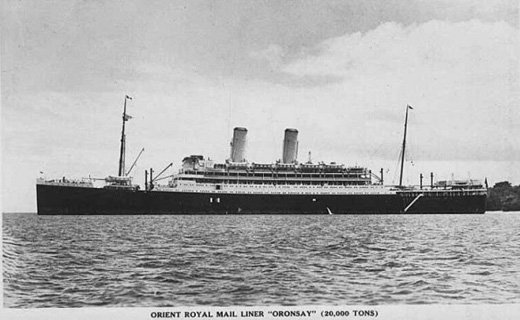Air Operations, Aleutians
A total of 10 28th Composite Bomb Group B-24s, 7 B-17s and 10 XI Fighter Command P-38s and P-39s mount 6 attacks on installations and shipping at Kiska harbor.
[Air Operations, Bismarcks
30 V Bomber Command B-17s attack the town area of Rabaul with 54 tons of bombs, the largest mission against Rabaul to date.
[Air Operations, Egypt
16 12th Medium Bomb Group B-25s join RAF bombers and fighter-bombers attacks on Axis landing grounds at El Daba and Sidi Haneish. 26 Axis aircraft are destroyed or damaged on the ground.
[Air Operations, Europe
100 bombers of the American Air Force carry out a daylight raid on the industrial plants at Lille. Americans and British share the bombing, the Americans taking on the daylight raids, the British those by night. RAF and US fighter protection is effective in that of the German aircraft which take off to intercept the raiders, 100 are destroyed or damaged.
BOMBER COMMANDDaylight Ops:
- 5 Mosquitos attack scattered targets in Germany; 1 plane is lost.
- 14 Wellingtons lay mines in the Frisians without a loss.
Air Operations, Libya
USAMEAF B-24s attack shipping and port facilities at Benghazi.
[Air Operations, New Guinea
15 V Bomber Command B-25s attack the airfield at Lae.
[Air Operations, North Africa
Allied warplanes make round-the-clock attacks on landing strips in the El Daba area of North Africa. The defending fighters are routed. 12 Allied planes are lost.
[Air Operations, Solomons
3 339th Fighter Squadron P-39s, on temporary duty with the 67th Fighter Squadron, shoot down 3 Japanese Navy float biplanes over New Georgia Sound at 0700 hours.
[ Royal Mail Liner Oronsay |
 |
Eastern Front
SOUTHERN SECTORAn eerie lull begins to settle over Stalingrad as the Germans wear themselves out. Both armies take the opportunity to rest and recuperate their exhausted units after the furious fighting of the previous month. Fighting continues in various sectors of the city but without the ferocity of the last few days.
Chuikov redeploys his battered divisions to face what he expects will be the next phase of German attacks. The 95th Rifle Division, with 3,000 men, is moved from the Mamayev Kurgan northwest into the factories, taking up positions between the 37th Guards and the 308th Rifle Divisions in the Red October. The 42nd Rifle Brigade, down to 900 men, is subordinated to the 95th Rifle Division. Chuikov also moves the 112th Rifle Division, with 2,300 men, into the Tractor factory.
SOVIET COMMANDOrder No. 307 restores unitary authority to the Red Army. This in effect abolishes the position of communist political commissar in favor of a single military commander in each unit. Party representatives remain part of divisional and army staffs for the rest of the war but are used to extol the party line than directly command military operations.
Yet again Paulus had failed to smash the 62nd Army. Despite massive losses in men, material and crucially territory, the Soviet defenders refused to give in to the German juggernaut. Chuikov's task now was now to hold German attention while the Stavka assembled its forces in secret against the exposed flanks of the Stalingrad salient.[
German Raiders
The German auxiliary cruiser Thor arrives at Yokohama in Japan at the end of her second cruise.
[Guadalcanal
The rear echelon of the 2nd Marines, 2nd Marine Division, arrives. The 164th Infantry of the Americal Division sails to Guadalcanal from Nouméa, New Caledonia.
The Whaling Group, followed by the 7th Marines, crosses the Matanikau, climbs the first ridge and rapidly attacks north along Hills 73 and 75 to the coastal area. The 2nd Battalion, 7th Marines, under Lt-Col H. H. Hanneken, advances 800 yards west of the river and turns right to attack over Hill 72 to Point Cruz. This battalion meets only light enemy fire. The 1st Battalion, 7th Marines, advances about 1,200 yards beyond the Matanikau and attacks north along a 2,000-yd ridge, which encompasses Hills 66-81-80, and the hill mass on the west, Hill 83. Calling on the 11th Marines for artillery support to cover his front, the battalion commander directs battalion mortars to fire into the ravine. Hit by this mortar fire, the Japanese attempt to escape by climbing the steep, open eastern slopes of Hill 83 where they are easy targets.
When their ammunition runs out, per instructions, the battalion withdraws and by 1400 the whole enveloping force, the Whaling Group and the 2nd and 1st Battalions, 7th Marines, have crossed east over the mouth of the Matanikau to return to Lunga Point concluding the 3-day action. Their withdrawal is covered by the 5th Marines. Casualties in the action: Japanese 4th Inf, about 700 men during last 3 days; Marines, 65 killed, 125 wounded.
The attacks have been halted largely because of intelligence reports that the Japanese plan to renew their attacks on the main part of the American beachhead. The weather clears, and the troops rest.[MORE]
[Madagascar
British East African forces begin moving south from the capital, Tananarive, to link up with the troops landed in the south at the end of September.
[Pacific
The US submarine Drum (SS-228) sinks the Japanese merchant cargo ship Yawatasan Maru (2461t).
[Soviet Command
Single command is restored in the Soviet army. The command authority of the commissars in the Red Army is taken away. The political commissar is to be designated 'vice-commandant in the political field' in army units and will still have an important role in morale and propoganda, but responsibility for military decisions now rests entirely with the commanding officers.
[United States, Policy
The US renounces extraterritorial rights in China, the first nation to abandon the principle of special rights for foreigners living in China. A new treaty outlining new ties, withouth the humiliating abuse of sovereignty, is proposed to the Chinese.
[